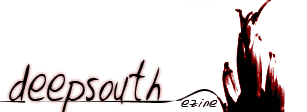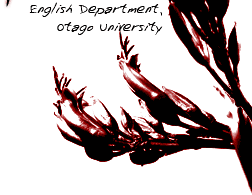Such decoction of human experience into universal, physical first principles, is mirrored by the form of his poetry, in both the carnality of its imagery and the primacy of aurality in its effect. In ‘Before I Knocked’, Thomas pictures the inception of life in the womb as the moment of death itself, “the fathering worm”. The inscrutable truth of the oneness of life (or sex) and death is of course one of the oldest metaphors of religion and poetry, sometimes alluded to tritely as “wombtomb” imagery. Yet the truism is reborn in all its terrible mystery through the striking physicality of his description of the infant in utero: “My heart knew love, my belly hunger;/ I smelt the maggot in my stool.” These lines also embody the elemental vim and vigour of Thomas’s style: the poetry itself is primarily a sensory construct, forcing the reader (or better, listener) into pausing all rational interrogation, at least initially, so that the world be grasped through the feel of syllables in the mouth and ear. The early poetry in particular exhibits a grinding, visceral quality, carving sound into verse that constantly reminds us of its physical presence as language. The first two stanzas of ‘The Force That Through The Green Fuse Drives The Flower’ is worth quoting in full since it epitomises Thomas’s early style and moreover is one of the clearest statements of his pantheism, of the unity of mankind with nature:
The force that through the green fuse drives the flower
Drives my green age; that blasts the roots of trees
Is my destroyer.
And I am dumb to tell the crooked rose
My youth is bent by the same wintry fever.The force that drives the water through the rocks
Drives my red blood; that dries the mouthing streams
Turns mine to wax.
And I am dumb to mouth unto my veins
How at the mountain spring the same mouth sucks.
The thumping iambic pentameters bludgeon the ear with their inexorable momentum, aided by monosyllabic diction that makes great use of the wonderful polyglot heritage of the English language, and in particular the strong words derived from Old English such as “heart”, “day", and “sun”. This poem gives voice to the tragic aspect of pantheism, in that the lyric subject that can give voice to such beautiful words is nevertheless subject to and impotent before these elemental natural forces. Yet even here, the sublime climax that each stanza reaches with the use of the rhetorical figure of preterition in the refrain “And I am dumb to…” leads to a muted note of acceptance: although language and reason seems to divorce us from nature, man and nature is nevertheless “the same”, allowing a measure of acceptance. The use of strong alliteration, as in Old English poetry, and rhetorical parallelism further imbues the verse with monumentality. As Robert Adams hyperbolically put it in a 1955 review, “[Thomas] used language percussively like a pianist playing with his forearms”(4). Yet just as the fact that the piano is itself a percussion instrument is often overlooked, Thomas brings to the fore the latent physical quiddity of language, underpinning his belief that all we can know must start in the senses. Seamus Heaney captures this aurality well in a review of the publication of Thomas’s personal letters: it is “a poetry that mines so deep down at the sound-face, at that aural frontier that constitutes the poetic interface between the back of the throat and the back of the mind.” Indeed the ostensible difficulty or excessive denseness of Thomas’s style seems to melt into the air upon hearing the poem read, particularly by the poet himself, rather than the words remaining dead on the page. Though it is perhaps true of all poetry that the domineering proclivity of the intellect must be held at least partially in abeyance to allow the mystery of the work’s actuality to exert its effect on the reader or listener’s sensibility, it is particularly true of Thomas. The poet himself railed against the cerebral tendency of modern poetry in a 1934 book review: “this lack of aural value and this debasing of an art that is primarily dependent on the musical mingling of vowels and consonants…”(5). His own poetry must be understood in these terms, as physical sound emanating from “the well/ Where words and water make a mixture” (‘Before I Knocked’). If one persists in obstinately puzzling out each line rather than letting sound naturally flow into sense under the rubric of the immanent metaphor of the poem, then Thomas’s verse can seem like standing before impenetrable, if carefully hewn, rock without an open sesame.
(4) Quoted by Moynihan, p.125. Robert Adams, “Taste and Bad Taste in Metaphysical Poetry: Richard Crashaw and Dylan Thomas,” Hudson Review, VIII (Spring, 1955).
(5) Quoted by Ackerman, p.87, from ‘Book Review’ by Thomas in Adelphi, vol. viii (September 1934).
page 1 2 3 4

